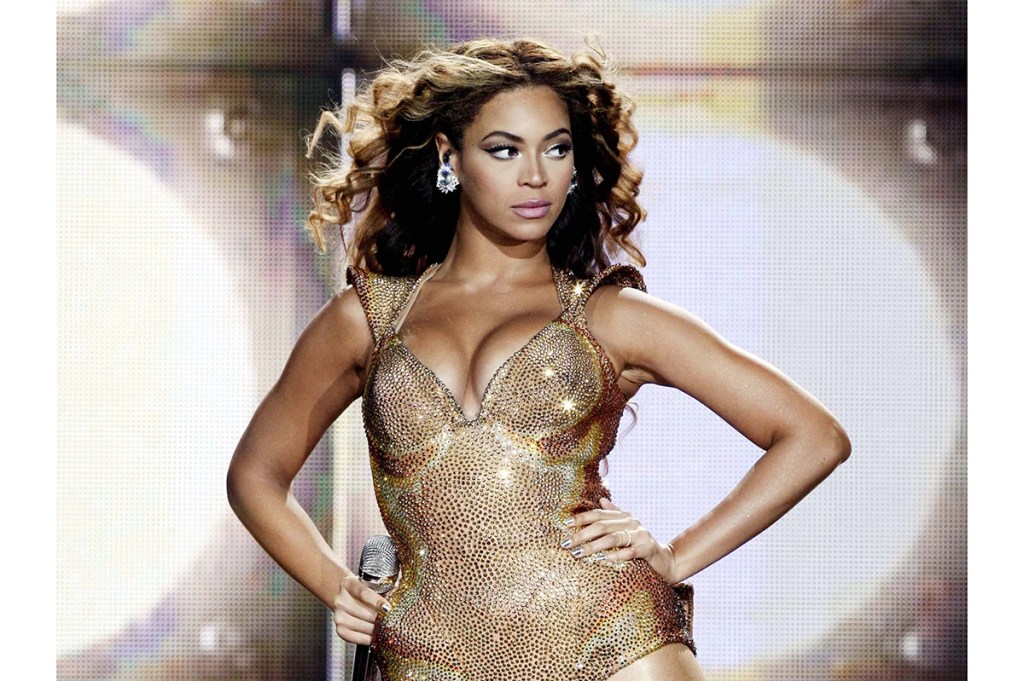Beyoncé Knowles has always been sexy: naturally and consciously so. But her sexiness — those astonishing bottom-swooshing dance moves; the gleaming, undulating chest; the ever-changing, lustrous locks — sat alongside a moral substance that grew as her career progressed. She weighed in on politics, raising $4 million for Barack Obama and singing at his first inaugural ball. She weighed in on sexual morality, telling women in one of her most iconic songs that their man ought to, if he was to be taken seriously, “put a ring on it.” She is a committed Christian, having grown up in a Methodist household and frequently spoken of her faith. And she is one of the world’s greatest marriage evangelists, calling her 2013 tour “The Mrs. Carter Show” in a nod to her husband Jay-Z’s name, and telling newspapers she’d only had one boyfriend before marriage who she didn’t even do “you know” with.
All of this made Beyoncé rather unusual in the twenty-first century milieu of gorgeous, scantily-clad female rap and R&B artists in declining to equate feminism with promiscuity. But things seem to have changed with her latest album, Renaissance. It sounds like Beyoncé, with that quixotic mix of the gospel and the cracklingly contemporary; the soulful and the sexy. But the moral and mental universe of Queen Bey — that empowered, God-fearing, positive role model for girls — has gone weird and withered.
Beyoncé rarely gets a word wrong, and yet last week there was furore over an “ableist slur” in the track “Heated,” in which the Queen of Pop sings of “spazzing on that ass.” In my youth in the US, “spaz” was an endearing accusation of clumsiness or anxiety, but in today’s highly sensitized discourse, it hit a nerve. Beyoncé will now be changing the lyric.
But what the backlash over that single word overlooked was a wider change in her lyrical landscape. Renaissance is packed with obscenity and, forgoing political or emotional themes, tends instead towards extended sequences of grunting desire. Beyoncé might have an army of young fans, but all but two songs on the album are marked as explicit; one — “Pure/Honey” — features the c-word sixty-odd times.
Romance is all but gone: the love-obsessed croons of previous pop queens such as Mariah Carey or Whitney Houston have been replaced with something much colder, harsher and more sexually mercenary. “Virgo’s Groove” is a clever-sounding, upbeat song that ought to be a Beyoncé anthem, but its moaning lust (and a rather graphic description of what she’d like someone to do on her blouse “right here, right now”) fits oddly with what fans have come to expect of America’s favorite Methodist. Even “Church Girl, at first glance an enthusiastic nod to Beyoncé’s Christianity, seems to be primarily about sexualized naughtiness.
So what has happened to Queen Bey? How did a self-professed good girl, a wholesome, feminist chronicler of women’s emotional worlds, come to write songs so stuffed with profanity?
The answer, I surmise, is that porn has won: the twitchy, performative, soulless, dark logic of porn that has seeped from adult entertainment into the wider world. Yes, the porn industry itself has expanded in recent years to include more that’s made by women and aimed at women. But what’s shaping the songs of Beyoncé and many of her contemporaries isn’t the rise of women-centric porn: it’s the sensibilities of the old porn, made by men for men — polished and entrenched thanks to an extra decade of being everywhere online.
Because in the end, women get worn down, and eventually anticipate what men want, incorporating it unconsciously or otherwise into their own psycho-sexual universe. Hook-up culture, which appeared to offer sex without strings to both men and women, hurts women in the short-term more often, since women tend to mind more when someone enjoys their body in the moment and then displays no interest in it — or them — afterwards.
But once hook-up culture arrived, women adapted, taking on the casual view of sex as best they could and insisting they loved it. Some did and do, of course (though it helps that anything else is seen as needy and therefore off-putting in the dating world). Meanwhile, porn — already widely consumed — spread to every handset in the land. It was only a matter of time before its aesthetics and cadences would cease to be outré or taboo, and become instead mainstream hallmarks of sexuality.
Women have not been passive in this: Fifty Shades of Grey, by the female author E.L. James, promoted fairytale heterosexual romance while igniting widespread female interest in BDSM, which revolves around consensual degradation, pain, subjugation and violence. Over time, consensual violence became a standard part of the sexual playbook — and found its way into pop culture. Now it seems utterly pedestrian: in 2020’s hit song “WAP,” Cardi B and Megan Thee Stallion call for unsafe sex, being choked, handcuffs, leashes and being beaten. On dating sites, women’s profiles have begun to detail tastes in dominance and submission.
Of course, not all women who express such fantasies are exhibiting internalized misogyny — it’s hardly a surprise that women will take dangerous and frightening ideas and sexualize them. That’s human. But the ubiquity of these kinds of desires reflects a broader flattening-out of the romantic arena. Love demands more of people than the fizzy excitement of an edgy sexual fantasy, and in a culture of instant gratification, love’s stock — which includes passion, intimacy and eros — is down. Beyoncé throwing around slang for female genitalia and plenty of f-words points to the relative ease of being sexy rather than romantic. Songs filled with sex and swearing have taken the place of the love songs of old.
Some will insist that this album, and ones like it, exhibit not misogyny but an empowered reclamation of words and ideas. It’d be nice if that were true. In reality, the cadences of masculine violence ring out too clearly.
This article was originally published on Spectator Life.

























